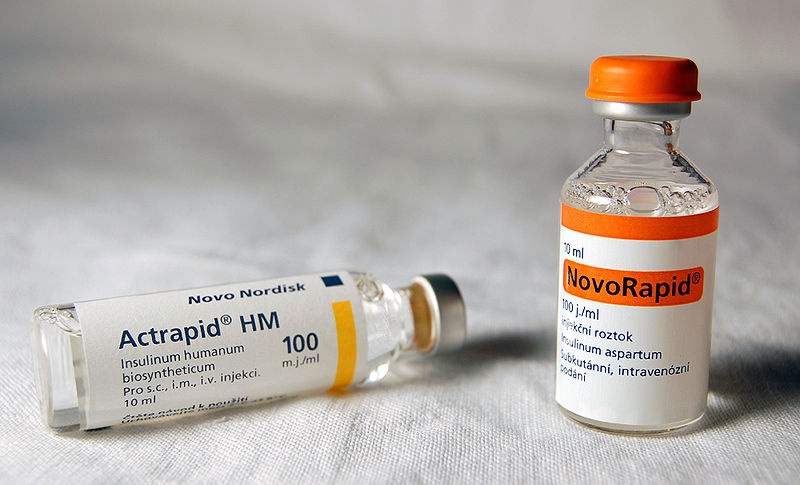cell The smallest structural and functional unit of an organism. Typically too small to see with the naked eye, it consists of watery fluid surrounded by a membrane or wall. Animals are made of anywhere from thousands to trillions of cells, depending on their size. Some organisms, such as yeasts, molds, bacteria and some algae, are composed of only one cell.
chemical A substance formed from two or more atoms that unite (become bonded together) in a fixed proportion and structure. For example, water is a chemical made of two hydrogen atoms bonded to one oxygen atom. Its chemical symbol is H2O. Chemical can also be an adjective that describes properties of materials that are the result of various reactions between different compounds.
diabetes A disease where the body either makes too little of the hormone insulin (known as type 1 disease) or ignores the presence of too much insulin when it is present (known as type 2 diabetes).
fat A natural oily or greasy substance occurring in animal bodies, especially when deposited as a layer under the skin or around certain organs. Fat’s primary role is as an energy reserve. Fat is also a vital nutrient, though it can be harmful to one’s health if consumed in excess amounts.
function A relationship between two or more variables in which one variable (the dependent one) is exactly determined by the value of the other variables.
glucose A simple sugar that is an important energy source in living organisms. It is half of the molecule that makes up table sugar (also known as sucrose).
hormone (in zoology and medicine) A chemical produced in a gland and then carried in the bloodstream to another part of the body. Hormones control many important body activities, such as growth. Hormones act by triggering or regulating chemical reactions in the body. (in botany) A chemical that serves as a signaling compound that tells cells of a plant when and how to develop, or when to grow old and die.
insulin A hormone produced in the pancreas (an organ that is part of the digestive system) that helps the body use glucose as fuel.
liver An organ of the body of animals with backbones that performs a number of important functions. It can store fat and sugar as energy, breakdown harmful substances for excretion by the body, and secrete bile, a greenish fluid released into the gut, where it helps digest fats and neutralize acids.
membrane A barrier which blocks the passage (or flow through of) some materials depending on their size or other features. Membranes are an integral part of filtration systems. Many serve that same function as the outer covering of cells or organs of a body.
molecule An electrically neutral group of atoms that represents the smallest possible amount of a chemical compound. Molecules can be made of single types of atoms or of different types. For example, the oxygen in the air is made of two oxygen atoms (O2), but water is made of two hydrogen atoms and one oxygen atom (H2O).
muscle A type of tissue used to produce movement by contracting its cells, known as muscle fibers. Muscle is rich in a protein, which is why predatory species seek prey containing lots of this tissue.
pancreas A gland found in animals with backbones that secretes the hormone insulin and enzymes that help break down foods in the gut.
receptor (in biology) A molecule in cells that serves as a docking station for another molecule. That second molecule can turn on some special activity by the cell.
tissue Any of the distinct types of material, comprised of cells, which make up animals, plants or fungi. Cells within a tissue work as a unit to perform a particular function in living organisms. Different organs of the human body, for instance, often are made from many different types of tissues. And brain tissue will be very different from bone or heart tissue.

